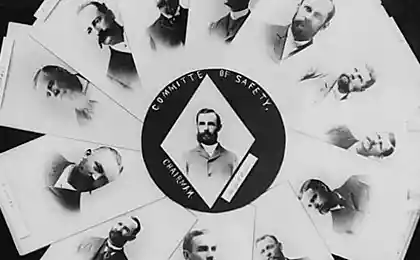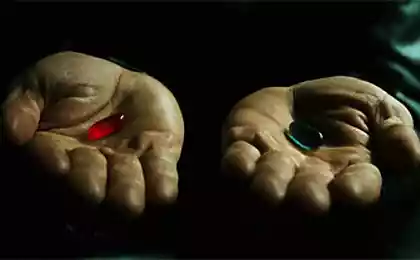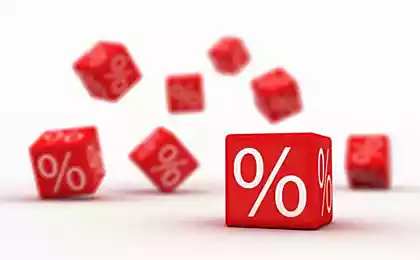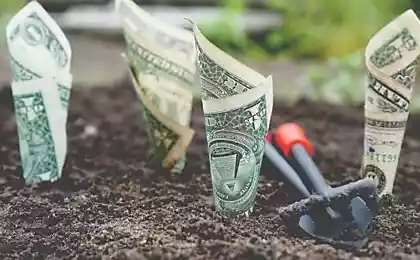How to get around the machinations of marketing, and not spend too much time in the sales

Coming New Year holidays. Marketers and advertisers seeking to get the most profit from sales of real customers unleash against psychological warfare. In an atmosphere of general consumer madness and excitement Many do not even notice that they become an object of manipulation, buying expensive, but by and large, useless trinkets. Successfully confront the massive onslaught of aggressive hunters contents of your wallet will help you the following methods.
1. Give yourself peredyshku

In the pre-holiday shopping centers are filled with crowds of people, sounds loud music, flashing screens with advertising - all this is a concern, makes your heart beat faster, resulting in a you lose the ability to think rationally and make a purchase, which later may regret. According to the published in the journal

«Psychology Today» article Keith Yarrow, professor of psychology at the University of Golden Gate (San Francisco), people in the crowd, suffering from a lack of time and forced to compete with each other in the struggle for the possession of any goods, meaningful action is sharply reduced. Man grabs everything that comes their way and only when the heart rate returns to normal, he begins to ask themselves questions - as well as whether he needs the thing for which he had just laid out a tidy sum?
During a shopping trip, to prevent consumers rush to empty your wallet, Try not to give in to a desire to get the goods on which you noticed. Walk past and return to it after some time - it will help you understand whether the thing you like, or blame momentary insanity.
2. Make a list, and double its proverte

Aimless stroll through the shops during sales and holiday discounts staggering - a sure way to spend a ton of money on useless stuff.

According to Lisa Cavanaugh, a specialist in consumer psychology from the University of Southern California, where the consumer sees a product in high demand, he is inclined to consider a bargain price, or believes that the excitement caused by a limited number of goods. This leads to the acquisition of the bestseller, even if then comes the realization that as a result of "bargain" buyer went totally unnecessary thing. "Succumb to madness everyone is very easy" - says the psychologist in an interview LiveScience.com
Instead of wandering around the boutiques in search of something unknown Make a list of your desired product, and determine the budget, which is going to meet. «The effectiveness of any human activity is much higher if she has specific goals" - says Ali Besharat , Professor of Marketing University of Denver. "According to one study, people who make lists of necessary before going to the store to spend 30% more than shoppers who do without them," - added the professor.
3. Do not believe their glazam
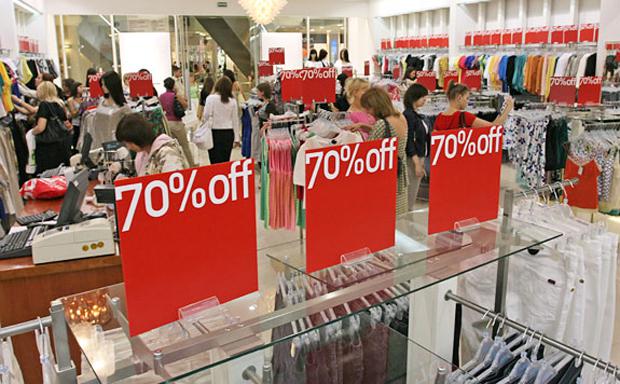
Employees of shops are arranged in a certain order goods - expensive products is on the middle shelf, it is surrounded by items with red price tags, signals discounts. According to the so-called "principle of the triangular balance", look the person in the center of always stops the picture, so noticing cheap goods, the consumer tends to focus on expensive and ultimately spending a lot of money. The established offices around the basket, filled with numerous trinkets, toys and other such trinkets also contribute to making unplanned purchases - standing in queues, buyers often amenable to sudden desire to take some beautiful bright little thing. Sami shops usually are a labyrinth, so that in the search for the department with dairy or bakery, you have to go through the shelves with goods not the first necessity, which nevertheless attract your attention and cause a desire to fork.

"The most important thing for the buyer - not to lose the mind" - says in an interview with the newspaper «The Telegraph» Karl McKeever, one of Britain's leading experts in merchandising. "When you are on the site of the seller, you are vulnerable to a variety of tricks and stunts, forcing you to spend money. The best thing you can do - keep your eyes open and watch carefully what is happening around "- expert advice.
4. Avoid halyavy

Manufacturers satisfied with giveaways of their products in supermarkets is not out of kindness - any marketer knows that this is an effective way to ingratiate himself to the consumer and to unleash it on the purchase. Kapil Bawa and Robert Shoemaker, the staff at New York University, one of his studies found that even a tiny tube of toothpaste is enough to instill customer loyalty to the brand.
«In contrast, discount coupons free samples of products could have a lasting impact on the sales of the goods concerned - in some cases up to 12 months after the action" - written by experts in an article published in the journal «Marketing Science».
blockquote> 5. Do not touch the goods without neobhodimosti
The results of some experiments show that touching the product provokes man to acquire it. So, out of it in the hands of an ordinary mug more than 20 seconds, you're more likely it buy, even if you did not want. Experiencing a pleasant tactile feel of the product, you are not noticing, convince yourself to buy it - brand new smartphone so sits comfortably in your hand that put him back in the window will cost you a lot of effort, and touching the soft tissue gourmet expensive jacket you imagine how good it will look at you. "Thinking about things like its, you're mentally prepared to pay for it" - says marketing expert from the business school at the University of Wisconsin in Madison, Joan Peck in an interview with her newspaper «Los Angeles Times».
via factroom.ru








